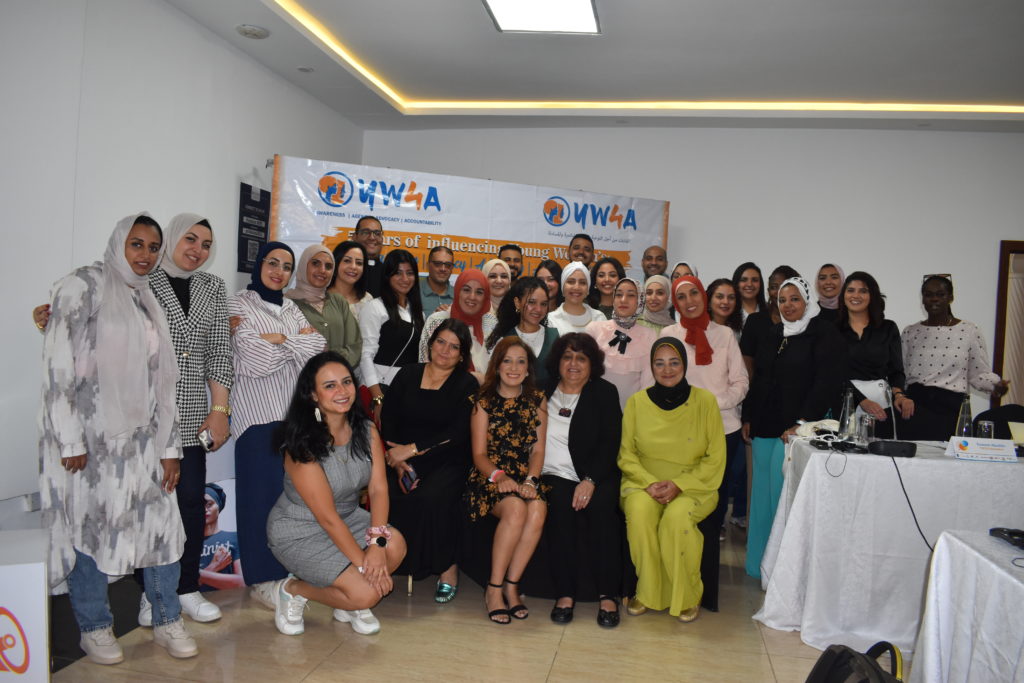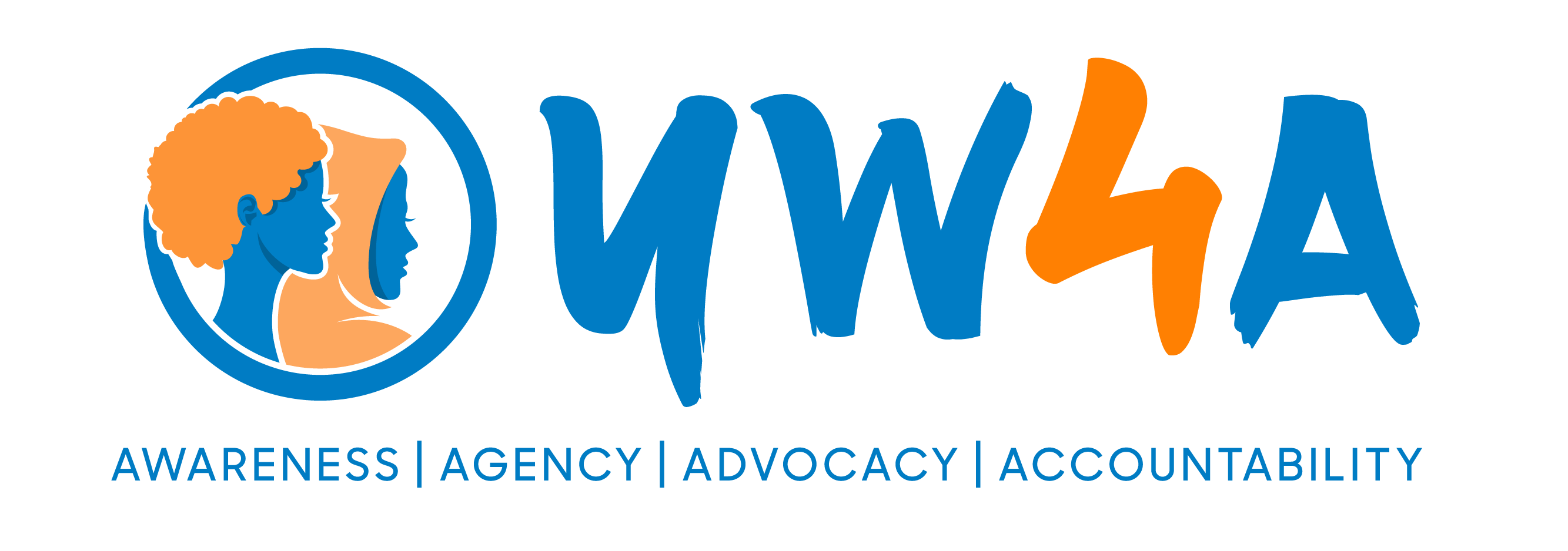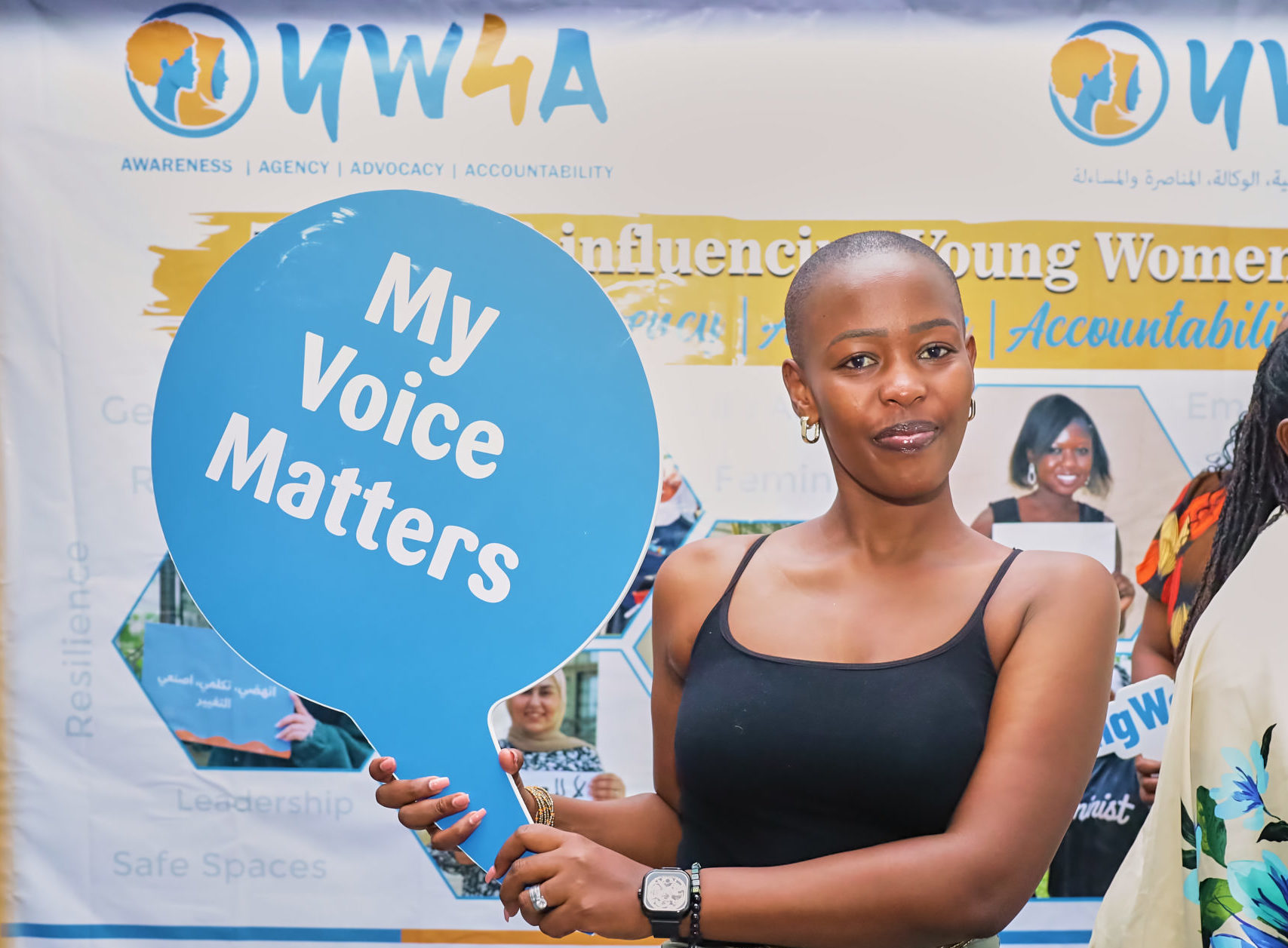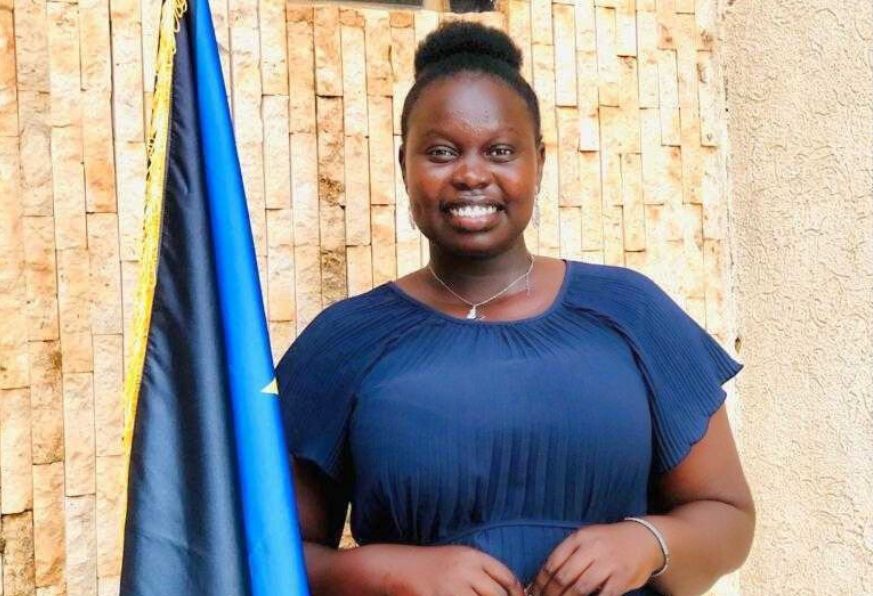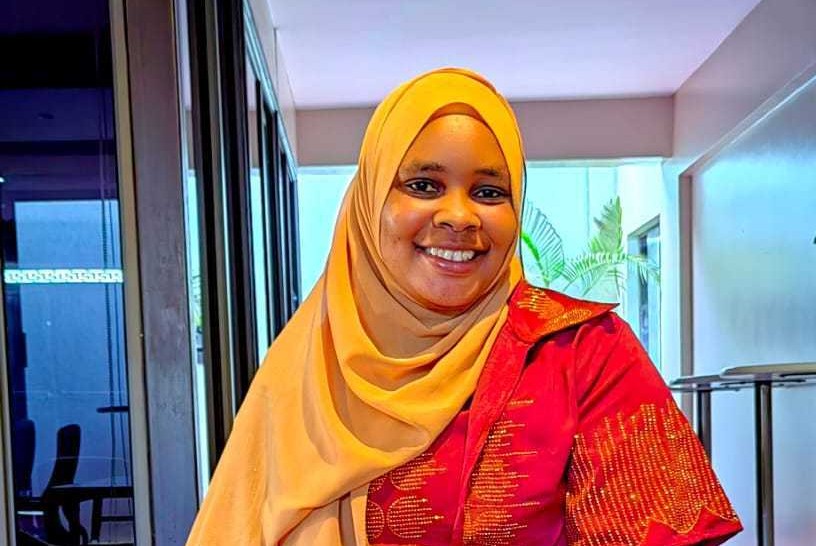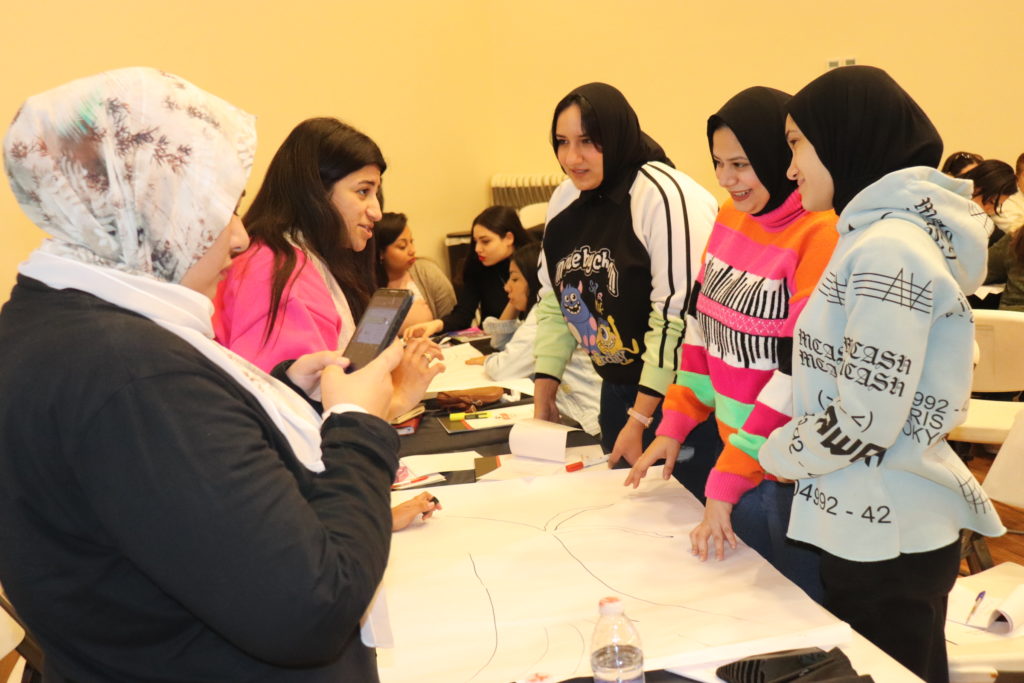
In Alexandria, Egypt, a quiet shift is taking place. Young women who were expected to stay silent about family, faith, work, safety, and their own futures are now starting conversations that challenge those limits. Through the YW4A programme, they have been meeting in safe spaces across the city, looking at the pressures they face in daily life and learning how to respond to them in practical, concrete ways.
These are the stories of 26 young women who took part in feminist consultation sessions. Their experiences show steady change. For many, joining the programme was the first real chance to understand their rights and to name patterns that had always been treated as normal: pressure to marry early, pressure to stay quiet, pressure to accept harassment, pressure to “know your place.”
Some of them started out unsure of how to speak up at home, at work, or in the street. Others were already carrying forms of harm that their name had never called. One young woman said, “I used to believe that only men could be team leaders. Now I know I can lead, and I already have.” That shift, from ownership permission, appears repeatedly in their stories.
Much of the work has been personal but not private. Several young women described pushing back against early and forced marriage in their own families. Others intervened in cases of female genital mutilation by speaking directly to mothers and relatives.
One participant shared how her cousin’s wife had planned to circumcise her daughters. She sat her down, explained the physical and psychological harm, and used her own experience to make it real. The girls were not cut. Another young woman described convincing her own mother not to circumcise her younger sister. Over time, the same mother began to speak to other women in the family about why it should not happen.
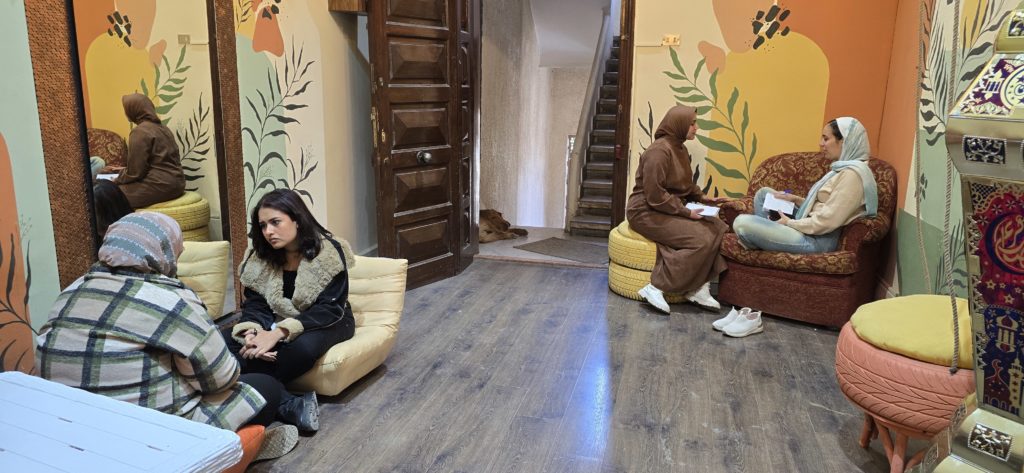
These are not abstract debates. They are direct interventions inside families, often against long-standing expectations. They show how knowledge shared in a room of young women travels back into kitchens, living rooms, and private conversations, and starts to unsettle practices that used to be automatic.
Online safety also came up as a real and urgent issue. Some of the young women talked about blackmail, stolen photos, and threats. One of them said, “A friend of mine was chatting with someone who turned out to be a hacker and stole her photos. She was afraid to report him, but I convinced her to act. We reported it to the university, and he was expelled.” For her, it was not just about support. It was about consequences.
Others spoke about daily harassment and the pressure to ignore it. Before, many would stay silent, accept blame, or simply try to avoid being seen. After the trainings, some began addressing harassment directly, calling it what it is and naming it as unacceptable instead of inevitable. As one young woman put it, “I used to stay quiet when things felt wrong. Now I step in and act.”
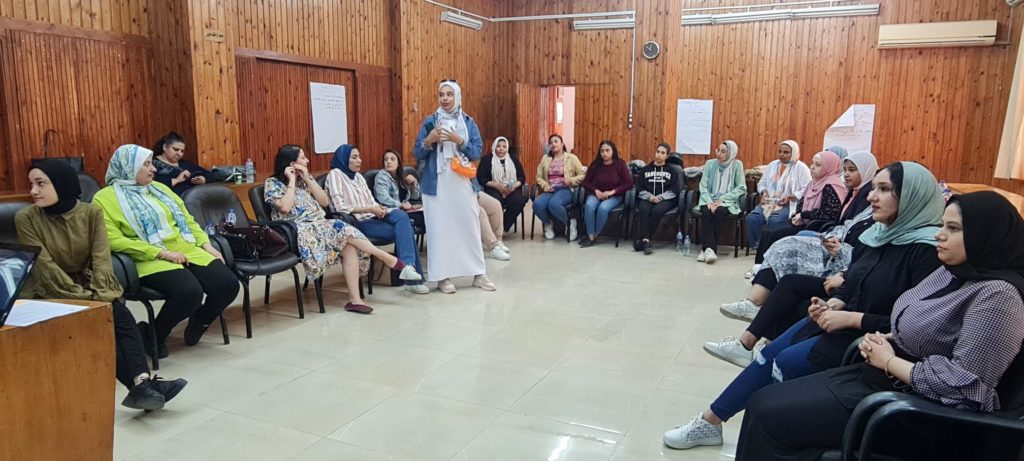
The change is also political, in the simple sense of being present where decisions are made. Several young women said they did not think politics or public life had anything to do with them. They did not see voting, taking part in discussions, or challenging local leaders as something “for girls.” That started to move. One of them said that before joining, she had never taken part in elections and did not know her political rights. After the training, she understood both her rights and her role.
Some have now taken visible roles within organisations. A few have become facilitators themselves, using the idea of safe space in their own work. One young woman said she now leads sessions in an anti-addiction programme, even though she used to have severe social anxiety and could not speak in front of a whole room. Others support peers who are dealing with violence at home, or guide girls their age to services and people who can help.
What began as quiet conversations in YW4A spaces has become a network. They are sharing information on where to go for help. They are challenging practices like FGM and forced marriage from within their own families. They are pushing back against online abuse. They are calling out harassment. They are sitting in rooms they were told were not for them.
Their progress has not been simple. Many still face resistance from relatives who believe that a “good girl” does not argue, or from men who see their confidence as disrespect. Some still struggle with pressure to marry early or give up work or study. But they are no longer meeting these pressures alone. They are comparing notes, preparing each other, and refusing to pretend this is normal.
YW4A’s role in Alexandria is not just training. It is making space for young women to speak plainly about what is happening to them and around them, and to act together. The work is not loud. It does not always look dramatic from the outside. But it is changing outcomes.
This is what is happening in Alexandria.
